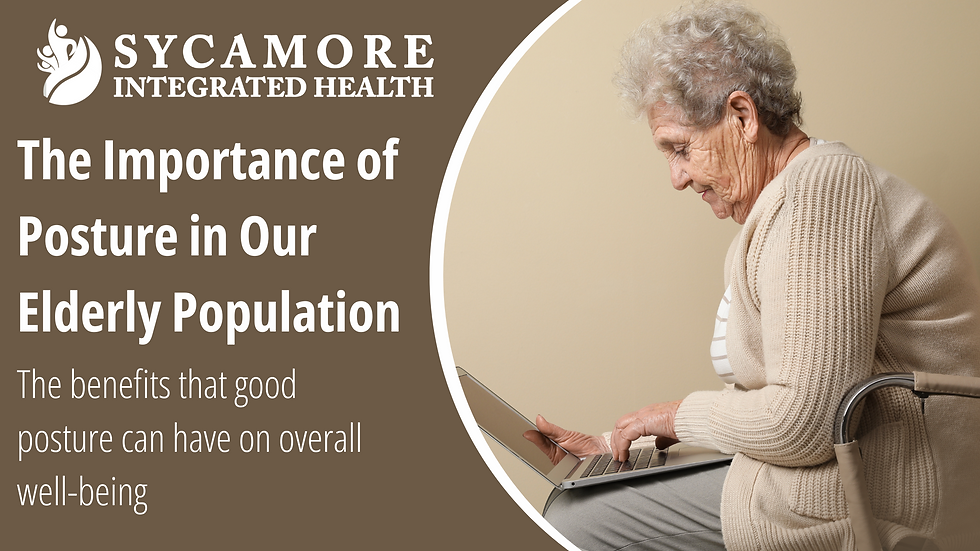Concussions 101: Understanding the Basics
- Sycamore Integrated Health

- Jun 16, 2025
- 2 min read

A concussion is a type of traumatic brain injury (TBI) caused by a blow or jolt to the head or by a hit to the body that causes the head and brain to move rapidly back and forth. This sudden movement can cause the brain to bounce or twist within the skull, stretching and damaging brain cells. Understanding the basics of concussions can help individuals recognize symptoms, seek appropriate treatment, and prevent further injury.
Symptoms of a Concussion
Symptoms of a concussion can vary widely from person to person, and they may not appear immediately after the injury. Some common symptoms include:
Headache
Dizziness or balance problems
Nausea or vomiting
Confusion or feeling dazed
Memory problems or difficulty concentrating
Sensitivity to light and noise
Blurred or double vision
Fatigue or feeling sluggish
Changes in mood or behavior (e.g., irritability, sadness, anxiety)
Red Flags: When to Seek Immediate Medical Attention
While many concussion symptoms are mild and resolve with rest, certain signs indicate a more serious injury requiring immediate medical attention. The red flags to immediately see an emergency room physician include:
Loss of consciousness
Repeated vomiting
Worsening headache that won't go away
Seizures
Slurred speech
Weakness or numbness in arms or legs
Unequal pupil size
Clear fluid draining from the nose or ears
Increasing confusion, restlessness, or agitation
Causes of Concussions
Concussions can result from a variety of incidents, including:
Sports injuries (e.g., football, hockey, soccer)
Falls
Car accidents
Assaults
Workplace accidents
Treatment for Concussions
Treatment for a concussion primarily involves physical and cognitive rest. This means avoiding activities that require physical exertion or mental concentration until symptoms subside. Other treatment recommendations may include:
Pain relievers (as directed by a healthcare professional)
Avoiding alcohol
Gradual return to activity under medical supervision
Rehabilitation therapies (e.g., Chiropractic care, physical therapy, occupational therapy, speech therapy) if needed
Who to See for a Concussion
If you suspect you or someone else has a concussion, it's crucial to seek medical attention. Professionals who can diagnose and manage concussions include:
Emergency room physicians
Primary care physicians
Neurologists
Sports medicine doctors
Athletic trainers
What can Sycamore Integrated Health do if you have been diagnosed with a concussion?
If you have been recently diagnosed with a concussion and have waited at least 5 days since the symptoms have subsided, come see us for care. We can help the healing process once the nervous system has healed enough to tolerate treatment. Things that Sycamore Integrated Health can do is chiropractic care, rehab therapy, balance exercises, and red light laser therapy.
In the meantime, it is good to get physical rest and “brain rest”. This means decreasing brain stimulation input. So stay off phones and tvs, listen to classical music, and try to stay and rest in a dark, quiet room.




Comments